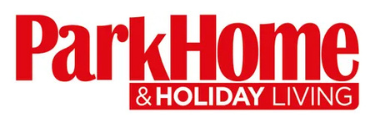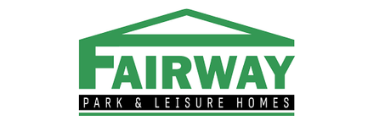Finding the perfect rental property is exciting, but before you start browsing listings, there’s one crucial question you need to answer: how much rent can I afford? Making the right calculation now can save you from financial stress later and ensure you maintain a comfortable lifestyle whilst meeting your rental obligations.
In this comprehensive guide, we’ll explore everything you need to know about determining your rental budget in the UK, from traditional calculation methods to modern considerations that affect affordability in today’s market.
Understanding the Basics: How Much of Rent Can I Afford?
The question of how much of rent can I afford isn’t just about having enough money in your bank account for the monthly payment. It’s about ensuring you can comfortably cover your rent whilst maintaining your quality of life and meeting other financial obligations.
The 30% Rule: A Starting Point
The most widely recognised guideline suggests that you should spend no more than 30% of your gross monthly income on rent. This rule has been a standard benchmark for decades, providing a simple framework for rental budgeting.
For example:
- If you earn £30,000 per year (£2,500 per month), your maximum rent should be £750
- If you earn £45,000 per year (£3,750 per month), you could afford up to £1,125 in rent
However, this rule isn’t one-size-fits-all, and in expensive UK cities, you might need to adjust your expectations.
How Much Rent Can I Afford UK: Regional Considerations
When determining how much rent can I afford UK, it’s essential to consider the significant regional variations in rental costs across the country. London and the South East command substantially higher rents than Northern regions, meaning the same salary stretches much further in some areas.
London vs. Other UK Cities
In London, average renters often spend 35-40% of their income on rent, whilst in cities like Liverpool or Newcastle, the figure might be closer to 25%. This variation means you’ll need to adjust your calculations based on your location.
Hidden Costs to Consider
When calculating affordability, remember to factor in:
- Council tax (unless included in rent)
- Utility bills (gas, electricity, water)
- Internet and phone contracts
- Contents insurance
- Travel costs to work
- Service charges (for some properties)
The 50/30/20 Budget Rule for Renters
A more comprehensive approach to determining rental affordability involves the 50/30/20 budgeting method:
How It Works:
- 50% for Needs: Rent, utilities, groceries, transport, insurance
- 30% for Wants: Entertainment, dining out, hobbies
- 20% for Savings and Debt Repayment: Emergency fund, pension, credit card payments
Under this model, your rent should be part of the 50% allocated to needs, typically representing 25-35% of your total income.
Calculating Your Rental Budget: A Step-by-Step Approach
Step 1: Calculate Your Monthly Income
Start with your net (take-home) pay after tax and National Insurance. Include any regular additional income such as bonuses or freelance work that you can rely upon.
Step 2: List Your Essential Expenses
Document all non-negotiable monthly expenses:
- Loan repayments
- Credit card minimums
- Insurance policies
- Phone contracts
- Subscriptions you can’t cancel
Step 3: Determine Your Disposable Income
Subtract your essential expenses from your monthly income. This figure represents what’s available for rent and living costs.
Step 4: Apply the Percentage Rule
From your disposable income, allocate a maximum of 30-35% to rent, ensuring you have sufficient funds remaining for utilities, food, and other necessities.
How Much Rent Can I Afford UK Calculator: Making It Simple
Whilst manual calculations are useful for understanding the principles, using a dedicated tool can provide more accurate and personalised results. At Charles Simpson Organisation, we’ve developed a comprehensive Rent Affordability Calculator for UK residents that takes the guesswork out of budgeting.
Our calculator considers multiple factors including your income, existing commitments, and local market conditions to provide a realistic rental budget. It’s particularly useful for first-time renters who might not be familiar with all the costs involved in renting a property.
What Landlords and Letting Agents Look For
Understanding affordability from a landlord’s perspective can help you in your property search:
Income Requirements
Most landlords and letting agents require proof that your annual income is at least 2.5 to 3 times the annual rent. Some may accept a guarantor if you don’t meet this threshold.
Reference Checks
Expect thorough referencing including:
- Employment verification
- Previous landlord references
- Credit checks
- Bank statements (sometimes)
Upfront Costs
Budget for these initial expenses:
- First month’s rent in advance
- Security deposit
- Moving costs
Special Circumstances Affecting Rental Affordability
Students and Young Professionals
If you’re a student or recent graduate, you might have limited income but may benefit from:
- Student-specific accommodation with inclusive bills
- Guarantor agreements
- Shared housing to reduce individual costs
Families with Children
Consider proximity to schools and whether you’ll need a larger property, which might mean spending a higher percentage of income on rent to secure suitable accommodation.
Self-Employed Individuals
If self-employed, you’ll typically need to provide:
- Two to three years of accounts
- Tax returns (SA302 forms)
- Bank statements showing regular income
Tips for Maximising Your Rental Budget
1. Consider All Property Types
Don’t limit yourself to traditional flats. Consider:
- House shares for lower costs
- Properties slightly outside prime areas
- Converted properties that might offer better value
2. Negotiate When Possible
In a competitive market, negotiation might be limited, but it’s worth trying, especially for:
- Longer tenancy agreements
- Properties that have been on the market for a while
- Off-season rentals
3. Look for Inclusive Deals
Some properties include utilities or council tax in the rent, which can simplify budgeting and potentially save money.
4. Time Your Search Strategically
Rental prices often fluctuate seasonally, with potential savings available during quieter periods (typically winter months).
Red Flags: When You’re Overstretching
Watch for these warning signs that your rent might be too high:
- Consistently struggling to pay rent on time
- Unable to save any money each month
- Relying on credit cards for basic expenses
- Avoiding social activities due to lack of funds
- Feeling constant financial stress
Planning for the Future
When determining how much rent you can afford, consider:
Short-term vs. Long-term Goals
If you’re saving for a house deposit, you might choose to rent below your maximum affordability to accelerate savings.
Career Progression
Factor in potential salary increases, but don’t overcommit based on uncertain future income.
Emergency Fund
Maintain at least three months’ worth of rent and living expenses in savings for unexpected situations.
Making Your Decision with Confidence
Determining how much rent can I afford UK requires careful consideration of multiple factors. Whilst the 30% rule provides a useful starting point, your personal circumstances, location, and financial goals should ultimately guide your decision.
Remember that the most expensive property you can afford isn’t necessarily the best choice. Leaving room in your budget for savings, emergencies, and enjoying life is equally important.
To get a precise, personalised calculation based on your specific situation, we encourage you to use our Rent Affordability Calculator
Conclusion
Understanding how much rent you can afford is the foundation of successful renting in the UK. By carefully assessing your income, expenses, and long-term goals, you can find accommodation that provides both comfort and financial security.
The key is striking a balance between a property that meets your needs and one that allows you to maintain a healthy financial life. Use the guidelines in this article as your framework, but remember that your unique circumstances should drive the final decision.
Ready to determine your rental budget with precision? Visit our Rent Affordability Calculator for UK today. In just a few minutes, you’ll have a clear understanding of your rental affordability, helping you search for properties with confidence and avoid the stress of overcommitting financially.
Whether you’re a first-time renter or looking to relocate, taking the time to properly calculate your rental budget is an investment in your financial wellbeing. Start your journey towards finding the perfect rental property within your means today.


















